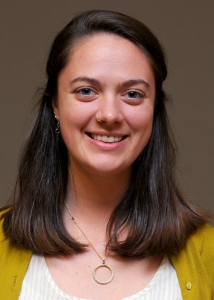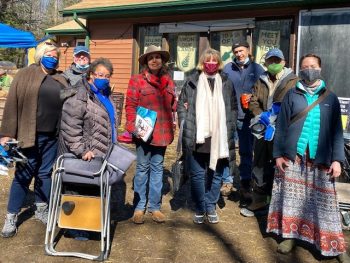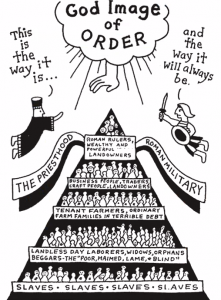 By Emilie Bouvier
By Emilie Bouvier
A few weeks ago, I was sitting in a comfy deep-seated camping chair, but still somehow managed to be on the edge of my seat. I was sitting around a campfire, but the experience reminded me of being in a seminary classroom with a favorite professor – rapped in attention, soaking in every word, scribbling notes faster than will be legible later.
I was sitting at the Palisade Line 3 resistance camp, listening to movement leader Winona LaDuke. Also in the circle were a handful of bishops and faith leaders and some visitors from New York who had made a long journey to be there. A few young men working on chores in the camp gradually grew closer and paused their work, perched on logs behind us, equally drawn in by her words.
“We can say ‘yes’ to a future free from the grip of corporate fossil fuel infrastructure, a ‘yes’ that opens doors for creative resiliency and energy independence at the local level.”
See, here’s the thing – much of the discussion is, and frankly should be, about the “no” that we need to say to new fossil fuel infrastructure. As Bishop Ann said so beautifully and clearly in her statement on Line 3, “We must together seek an energy future that is not dependent upon fossil fuels that continue to cause harm to ourselves and our planet.” And as Winona shared clearly that morning as her starting place for the conversation, “At the close of the tar sands era, the last thing we need to invest in is another pipeline.”
YET AT THE SAME time, if you listen to Winona and others for more than five minutes, there is a much deeper and more hopeful conversation beyond that initial and necessary “no” that punctuates the news headlines.

Religious leaders join Winona LaDuke at the Palisades Line 3 Camp.
Even the “no” itself stems from a deep and resounding “yes.” This is a “yes” to a deep joy and love for creation. It is a “yes” to a future free from the grip of corporate fossil fuel infrastructure, a “yes” that opens doors for creative resiliency and energy independence at the local level. This “yes” is something that Winona and indigenous community leaders with her are already leading on – from working entrepreneurially on plastics-free materials to investing in community-owned solar.
I heard firsthand Winona’s excitement and joy in imagining a new, just, and resilient economy embedded in local communities. I caught her vision for a resounding “yes” to engaging and building an energy system that enriches our skills and relationships rather than complying to an energy system rooted in separation and consolidated assets that ultimately leave our communities.
“It was striking to hear Dr. Rossing talk then about Revelation as image-based form of resistance.”
Our EcoFaith community organizing in the synod has been rooted too in this resounding “yes.” Together we’ve asked: “How do we re-think our systems to make renewable energies and energy efficiency accessible to everyone on a scale that meets the urgency of the moment?”
I have recently felt more hopeful in addressing this question than I have in a long time. We have been hard at work building powerful relationships with local energy decision-makers that can shape this kind of energy future, and we’ve been gaining traction.
We have to be able to say “yes” and “no” to the right things, and this work is a holy discernment.
HEADING INTO THIS Earth Day week, I was blessed by the voice of another powerful, faithful woman, professor and theologian Barbara Rossing. I heard her speak during a virtual EcoFaith retreat on Saturday, hosted by our friends in the Northeastern Minnesota Synod, and a slew of partners.
Dr. Rossing’s scholarship on the book of Revelation unpacks the text as an image-rich vision for the future that that stands directly counter to the empire ways of Rome – namely, the growth, conquest, and commodification of resources and the state-sanctioned oppression and violence that was enacted to protect that system. Its horribly chilling how familiar that sounds.
I stared at my zoom screen as Dr. Rossing shared this image from Dan Erlander’s Manna and Mercy depicting public thought during the Roman Empire. I certainly saw this image differently this week, having just heard stories of indigenous leaders arrested going to tribal prayer lodges near to the pipeline route and witnessing firsthand the militarized national guard presence in Minneapolis. These images are all too similar.
“Sometimes we need to say “no” to have the imagination to say ‘yes.’”
It was striking to hear Dr. Rossing talk then about Revelation as image-based form of resistance. Revelation offered to God’s people an eschatological vision – a vision of the future – counter to the Roman propaganda of the day. Sometimes we need to say “no” to have the imagination to say “yes.”
Friends, these are tense days and it is abundantly clear how much is at stake. From environmental resources to racial trauma, what kind of “no” are we willing to say amidst the grip of empire and its patterns of violence that keep things “the way it will always be?” And what kind of “yes” are we willing to not only imagine and proclaim, but work to build together on the other side?
